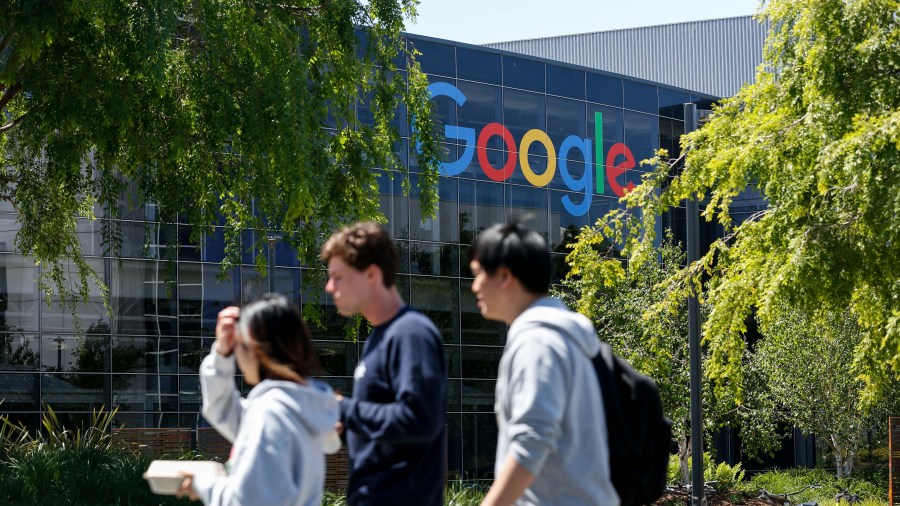Wired gets the tea on three years of struggle at Google

On Fridays, our “Quality Assurance” segment takes a deeper look into a big tech story. This week: inside employee tensions at Google.
Google, as a company, has a long history of internal disagreement and activism. But in recent years that internal culture — where employees are encouraged to argue with executives, with each other and to protest decisions and policies they don’t like — has become an external culture, too. Employees have visibly protested Google over politics, hiring, how the company deals with sexual harassment and business decisions. They’ve publicly questioned whether the company should do business in China or make deals with the Pentagon.
Host Molly Wood spoke with Nitasha Tiku, a senior writer at Wired. She wrote September’s cover story about tensions at Google. Wood asked her: At what point do these employee tensions become a risk to the business? The following is an edited transcript of their conversation.
Nitasha Tiku: It just pulls your focus from one area. Maybe all you’re doing is making incremental changes to avoid bad press after a walk out. [But] when you are trying to compete with Jeff Bezos and compete with Mark Zuckerberg, and compete with all the startups who all of a sudden in the middle of the tech backlash see an opening for themselves, the idea that you must placate your employees is certainly a distraction. Or that’s how they [at Google] view it.
Molly Wood: Are the divisions at Google happening at every company? Are they a microcosm?
They have decided that Google isn’t listening, so they’re going to take these debates outside.
Nitasha Tiku
Tiku: I think so. Their internal social networks certainly operate like a microcosm of the external social networks. The difference is that [protesting employees] have decided that Google isn’t listening, so they’re going to take these debates outside. We’ve seen the same thing inside Facebook, where there are representatives who could be described as having far-right, or reactionary-right politics, and then people who are also on the far-left. I don’t know that employees at other companies feel like they’re still going to have their jobs if they speak out, but there are certainly those divisions happening across the political spectrum on companies from their own employees.
Wood: Is this going to be the new normal at Google, or do you think Google is going to have to work to change? This is the hardest thing a company can do, I know, but is Google going to have to work to change its culture in order to survive this level of distraction?
Tiku: This is the new normal. They really pride themselves on having this open internal forum for debate. When I talked to executives for this story, and I asked, “Are you going to try to shut down these internal forums?” And they said, “No, it’s such a huge part of our culture.” And I know they would have such an internal backlash if they tried to officially clamp down. So, they might be trying to find ways to influence the discussion that aren’t as drastic as no more mailing lists, or no more Google+ or no more talking to the press.

Related links: more insight from Molly Wood
One thing Nitasha Tiku notes in her piece is that Google’s biggest external protest came in 2018, when 20,000 employees in 50 cities walked out to protest how the company handled sexual harassment claims. It was sparked partly by revelations that the company had paid Android creator Andy Rubin some $90 million for him to leave Google after allegations of sexual misconduct. But Tiku reports that despite some small changes at Google as a result of the protest, only a few of the organizers of that walkout are still at the company.
Last month, the second of two primary organizers Meredith Whittaker left Google. In an internal goodbye letter, she wrote about leaving, which was later shared on Medium. Whittaker said she and the others who spearheaded the walkouts faced retaliation, which Google denied. But she also said in her post that she was leaving to work on the ethical use of artificial intelligence technology, and that she feels she can’t do that work at Google.
Protesting is still alive and well inside Google. Just Wednesday, employees started a petition internally and on Medium demanding that Google not bid on a big cloud computing contract with U.S. Customs and Border Protection, because of concerns over human rights, family separation and the treatment of migrant children at the border. As of this writing, the petition had about 800 supporters.
It should be noted that it’s not only Google where employees are protesting company policies and business decisions. Casey Newton at the Verge points out that Google may have started a trend that’s also happening at Amazon, Salesforce, Microsoft and Riot Games, to name a few.
The future of this podcast starts with you.
Every day, the “Marketplace Tech” team demystifies the digital economy with stories that explore more than just Big Tech. We’re committed to covering topics that matter to you and the world around us, diving deep into how technology intersects with climate change, inequity, and disinformation.
As part of a nonprofit newsroom, we’re counting on listeners like you to keep this public service paywall-free and available to all.
Support “Marketplace Tech” in any amount today and become a partner in our mission.

















